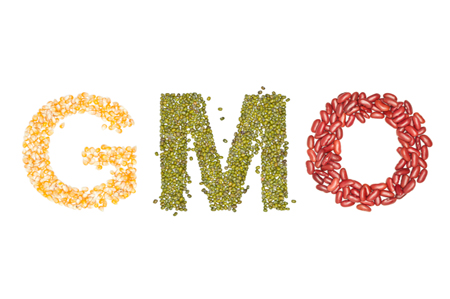The Environmentalist Case In Favor Of GMO Food
Category: GMO
 (Forbes) – Consumers are deeply suspicious of GMO foods–products made from genetically modified agricultural crops. They are told that growing such crops may have adverse health effects. They are warned that the transfer of genes across species amounts to an “unnatural” global experiment in human beings. They are led to believe that GMO cultivation techniques have disastrous environmental effects, due to heavy use of pesticides and insecticides. And they worry about crop biodiversity and about the unintended effects on other species that live in GMO fields.
(Forbes) – Consumers are deeply suspicious of GMO foods–products made from genetically modified agricultural crops. They are told that growing such crops may have adverse health effects. They are warned that the transfer of genes across species amounts to an “unnatural” global experiment in human beings. They are led to believe that GMO cultivation techniques have disastrous environmental effects, due to heavy use of pesticides and insecticides. And they worry about crop biodiversity and about the unintended effects on other species that live in GMO fields.
I used to worry about these things too. I was concerned about the environmental impact and the integrity of the food production. But then I decided to teach a class on “Food Law” at the University of Chicago, and in preparation I read the literature—not the pamphlets, but rather the underlying science. I was astonished to discover that my prior suspicions were deeply misguided. I have since witnessed the same “aha” moment among numerous audiences, realizing that their GMO environmental fears are refuted by the evidence. And yet, outside the narrow confines of the informed public, GMO paranoia continues to rage.
Now, a new report published in “Nature” has the potential to help put a categorical end to these worries. The report compiles the entire body of science that previously examined the impact of genetically modified corn—over 6,000(!) published articles—and distills the essential findings of that massive research. The conclusion of the report is clear cut. It is a dramatic account of how big the benefit and small the risk is from GMO crops.
The societal effects of GMO crops, and especially corn, have attracted enormous public and scientific attention, not least because such crops dominate the food we eat. Almost all the science in the area has consistently produced a reassuring message, but until now it continued to be received with skepticism in some circles. To persuade the skeptics, the new report examines the results only of those prior scientific investigations that performed large field experiments and that compared GM and conventional corn crops grown under identical conditions. Here are the results:
First, genetic modification increases corn yields, by a lot. This not surprising: pests account for a loss of almost one third of yields, and weeds for a loss of another 10%. Genetic modification addresses these two sources of loss, and thus crops resistant to either pest or weeds yield on average 10% more grain, and crops resistant to both deliver a 25% increase in grain yield. Consider the global importance of such an effect: the world could use one-fifth less farm land to produce its food. This means less deforestation. It also means less greenhouse gas emissions, by as much as one-eighth of the annual emissions from automobiles. There is no other policy that a true environmentalist should support more vigorously than the transition of the rest of the world to GMO-based agriculture.
Second, genetically modified crops are not only richer, but also better. In GMO fields, there is an average 60% reduction in damaged crops (84% reduction if counting only the most advanced GMOs). None of the nutritious composition of corn is reduced. On the contrary: GMO corn was found to have one third less “mycotoxins”—poisonous chemicals introduced into the crops by insect attacks. This reduction in the contamination of grain is particularly large in developing countries, where the illnesses such contaminations cause have significant economic costs.
Finally, there is a prevailing concern that GMO agriculture uses chemicals that cause unintended environmental harms. The meta-report shows that the concern is misguided. Of all the species living in the cornfield ecology, only one family of parasitic wasps is negatively affected. Overall, there is no substantial effect on insect biodiversity. And other studies have found a dramatic reduction in the use of herbicides and insecticides.
Wisely, the authors of the report chose to err on the side of caution. They excluded much evidence that provides even stronger support for the safety and quality of GMO crops. They did not examine the enormous advantages of GM crops other than corn, which are engineered to yield important nutritional value or to reduce the adverse effects of conventional crops.
This comprehensive and careful assessment is exactly the kind of science that should be taken as conclusive to resolve a public policy debate. Consumers should not attach any added value, and should not agree to pay any added price, for “non-GMO” food products. And environmentalists should be at the forefront of advocating in favor of GMO technology. And yet, paradoxically, the more resounding the statements of scientific unanimity about the environmental benefits of GMOs, the stronger the ongoing campaigns in retail markets to promote non-GMO foods.
Why are consumers oblivious to the scientific reality? The blame, in part, falls on anti-GMO propaganda. Advocacy groups that ordinarily preach for the supremacy of scientific evidence in informing public policy (climate change? gun control?) remain unshakeable by the mountains of scientific proof in this context. There is a dogmatic, almost religious, fervor in the conviction that “frankenfoods” are immoral. It seems that no quantum of evidence can budge this belief.
Consumers are also misled by opportunistic non-GMO campaigns launched by companies that know the underlying science. It is ironic that in the epicenters of such consumer demand—in elite stores that purport to sell environmentally responsible foods—there is an ongoing concerted effort to breed, rather than uproot, these irrational and harmful fears.

